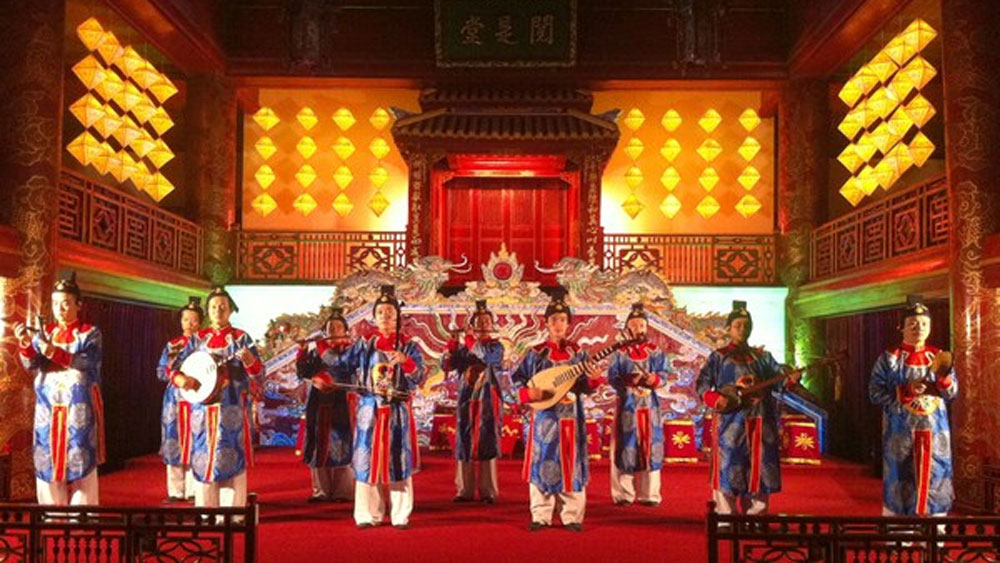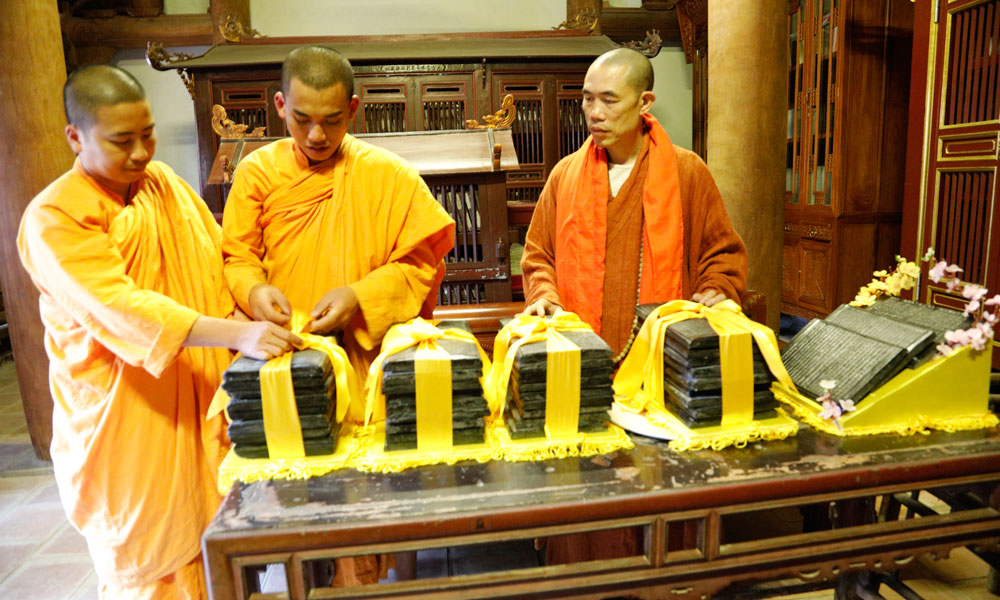UNESCO official hails Vietnam’s role in protecting intangible cultural heritages
Curtis said that Vietnam is currently home to 15 recognised intangible heritages and the first country to switch some heritages from the list of urgent protection to the list of the common heritage of the humanity.
 |
|
A performance of Hue court music, a UNESCO-recognised world intangible cultural heritage. |
The country has also showed its active role through its engagement in the Intergovernmental Committee for the Safeguarding of the Intangible Cultural Heritage twice.
Vietnam has supplemented the Cultural Heritage Law 2009 with a number of new cultural policies, including the recognition of intangible cultural heritage.
Currently in Vietnam, intangible cultural heritages are recognised not only in national policies but also by all regions, all localities and all ethnic groups, he said, hailing Vietnam’s strong efforts in the work.
Vietnam has been aware of the role of culture in the sustainable development and has put culture at a high position in its national development policy, he stated, underlining that this is an important message that the country is spreading.
According to Curtis, the 2003 Convention, which has taken effect for 20 years, has been ratified by 181 UNESCO member countries, showing that the convention is meaningful for all.
Regarding measures that Vietnam should take to protect its intangible cultural heritages, Curtis said that the protection of intangible cultural heritage takes place through the transfer between generations which must ensure its continuity.
It is necessary to design new mechanism, while working with communities and integrating knowledge on heritage into education and paying more attention to young people, as they are the person who will transfer the knowledge to future generations, he said.
Overall, the protection of intangible cultural heritage should aim at achieving sustainable development goals either in agriculture, education or poverty reduction, he said, adding that intangible cultural heritage matters should also be integrated into development policies. Vietnam has so far shown strong performance in the work and should continue to follow this direction, he stated.
Source: VNA
 Bắc giang
Bắc giang















Reader's comments (0)